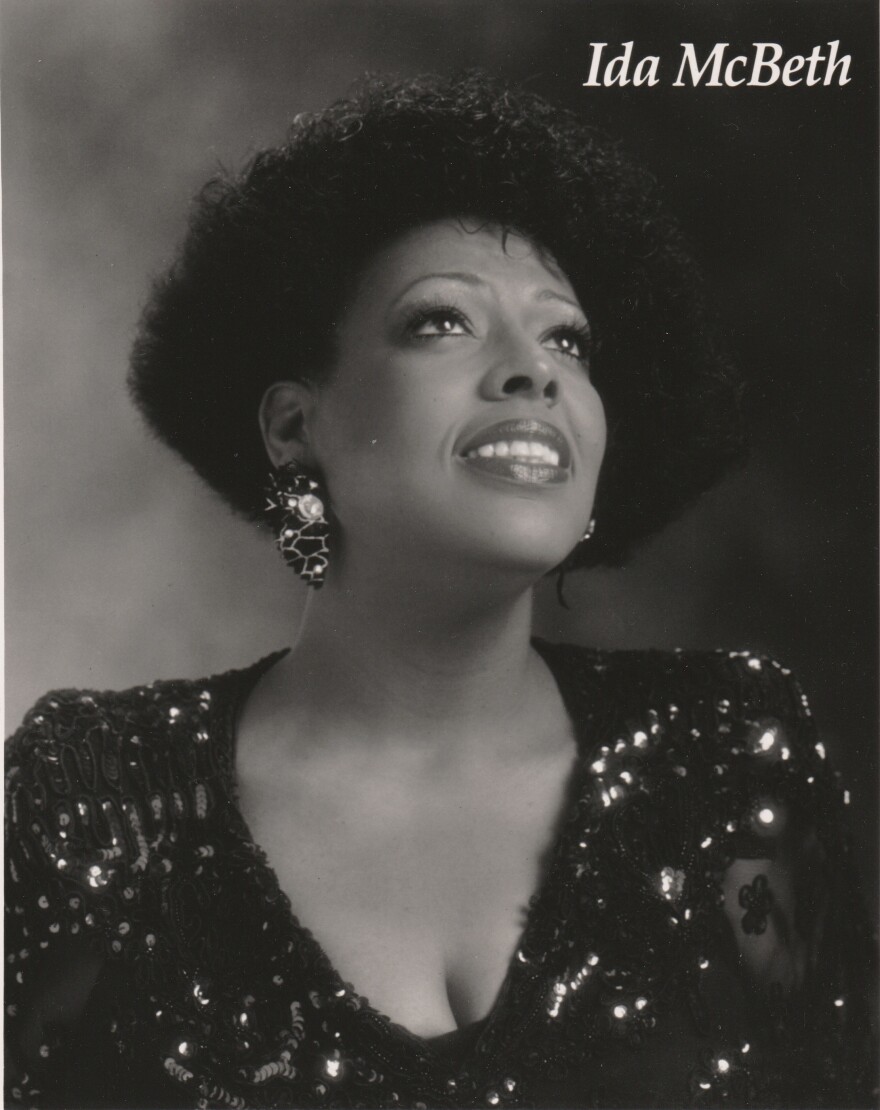The American Jazz Museum celebrates two Kansas City musical acts this weekend with Lifetime Achievement Awards for the McFadden Brothers and Ida McBeth.
McBeth's musical memories go all the way back to when she was five years old at church, singing the solo on a song called “It’s In My Heart.”
McBETH: “I always sounded like a grown woman, even when I was a little girl. So I got up one Sunday morning and they said, 'We’re gonna have Miss McBeth come up here, little old Miss McBeth. Come on up here and sing the song, baby, come on.'

"They got me in the choir, they put me on some boxes so I could sing up to microphone, and I started singing 'It’s In My Heart.' And all the sisters got to falling out with the white dresses on, the deacon was going over there with fans trying to fan them on the floor, and I was getting scared (thinking) my mother’s gonna give me a whipping because I made the old ladies fall out. But then I found out that was a good thing.”
HADDIX: “Of course there’s the other side of the aisle in American music, the sacred and the secular. How did you make that transition?”
McBETH: “I’m going to tell you what happened. I was wrapping gifts at Montgomery Ward. And I would sneak into the clubs and sing — I’m talking 13-14 years old. They told me, 'We’ve got a job where you can sing' — this guy by the name of Ray Naylor owned a couple of music stores one at Indian Springs and one out on 69th and State in Kansas City, Kansas. He became my band leader. It was a trio.

"I would go and wrap gifts from about 6 to 9:30, and I told my mother, ‘Mama, they want me to wrap gifts after hours.’ She said ‘After hours? What time you gonna get off?’ I said, 'Around about 12 o’clock.' ‘Twelve o’clock! I never heard of such! As long as they pay you, you can go ahead and do it.’
"I would get off work there, put my singing clothes in a paper bag and catch the bus. And I would get off and walk up the hill to Baltimore. That’s where the Playboy Club was, at the top of this hotel. My mother finally found out. She got so upset until I showed her how much money I was making. Of course I was making more money than my mother was making. I’ll never forget: I was making $135 a weekend.”
HADDIX: “You came up at a time in Kansas City when a lot of the true legends were still around, like Priscilla Bowman, Jay McShann, Claude Fiddler Williams — I could go on with a who’s who. Who helped you along and encouraged and mentored you?”

McBETH: “That’s really hard to say. A lot of people think it was probably my husband, but it wasn’t because he was 34 years older than I, so he didn’t want me to sing. Back in his era, the singers, he called them the band’s wife. I said, ‘the band’s wife?’ And that was true. Because a lot of times the singer would do everything. She’d get up on the first set, she’d be the shake dancer, she’d throw off her bra. She’d do a little strip tease, and then she’d sing on the next set. Then she’d, I guess whatever else a wife does, that’s what she did.
HADDIX: “What creates this unique sound that you have when you get into a song and really explore it?”
"But to tell you the truth, I was strong enough to where I wanted to sing because I knew I had a song to sing.”
McBETH: “I feel like I’m telling the story. That’s why I don’t ever get tired of singing a song over and over again. People say, 'Don’t you get tired of doing, "You Can Have My Husband?" No, because there’s somebody out there who’s never heard it before. And I want to make sure you can have my husband. Don’t you mess with my man. I’m telling a story. That’s why I feel like it sounds distinctive just me. Can’t nobody be Ida better than I can be Ida.”
Listen to Chuck Haddix's complete interview with Ida McBeth, and hear some of her music, on the May 7, 2016 episode of the Fish Fry.




